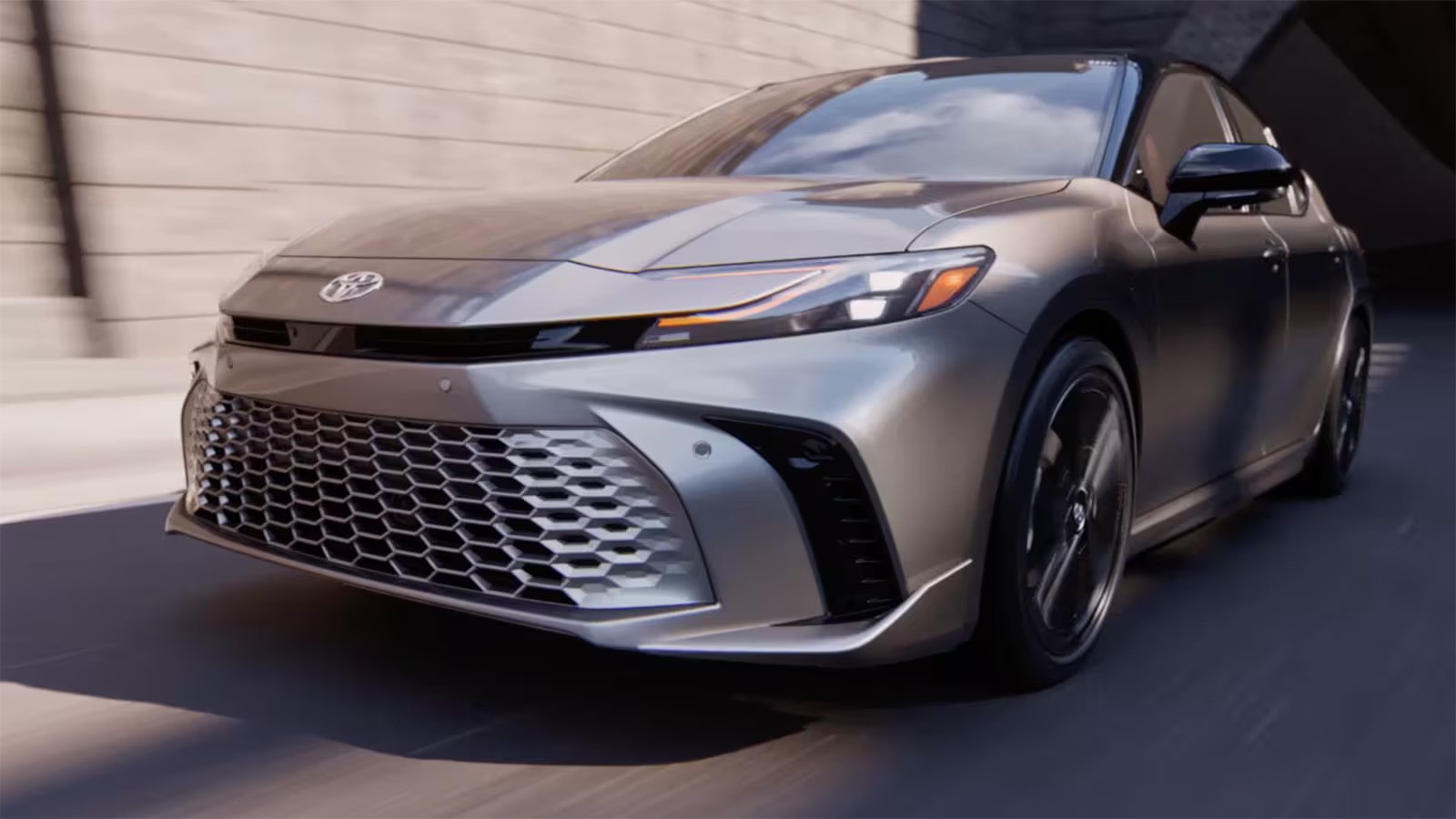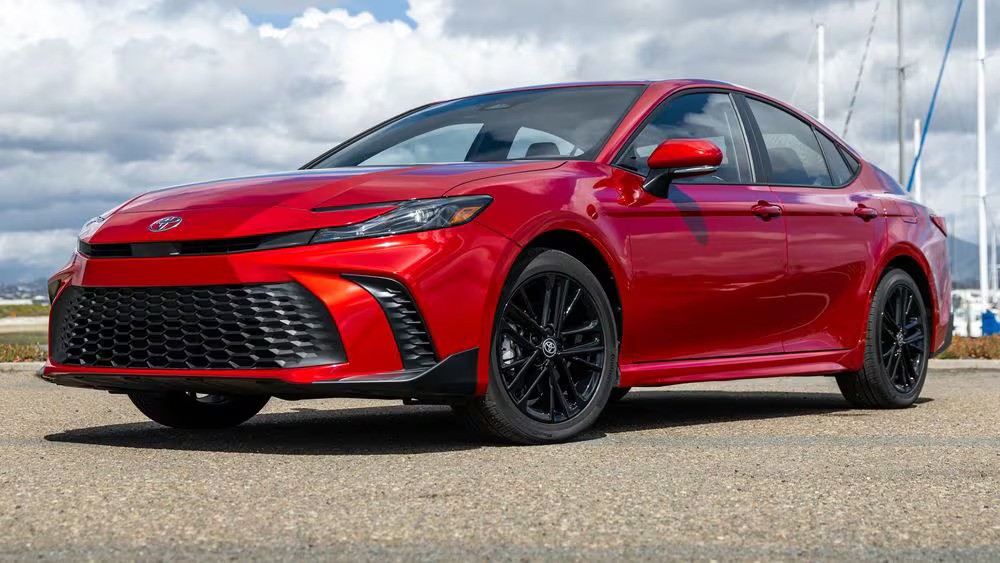Toyota cars are known for being reliable, but the company is also known for making fuel-efficient hybrid cars. The 2025 Toyota Camry family, which is all-hybrid, is a mix of the two. We used official EPA numbers to figure out how fuel-efficient the ninth-generation compact car really is.
Front-wheel drive 2025 Camry gets good gas mileage
As we already know, Toyota has removed the Camry’s four—and six-cylinder gas engines for 2025. The car will only have an improved hybrid motor from the previous model year. This means that front-wheel-drive Camrys, with their 2.5-liter gas-electric hybrid engine, make 225 horsepower. In comparison, the first-ever all-wheel-drive Camry hybrid makes 232 horsepower with the same hybrid powertrain and an extra electric motor connected to the back axle. These numbers are higher than those for the four-cylinder gas-only Camry and Camry hybrid from the last model.
The 2025 Camry gets almost the same gas mileage as the last model, even though it has more power. The base model with front-wheel drive costs $29,495. The impressive Camry LE gets 51 mpg in the city, 50 mpg on the highway, and 51 mpg overall. This is only 1 to 2 mpg less than Camry LEs from earlier generations. Credit goes to Toyota’s fifth-generation Hybrid System (THS 5), which again uses a continuously variable transmission (CVT) of the planetary type to connect a 2.5-liter gas engine with two electric motors. All of the front-wheel-drive Camry SE, XLE, and XSE trim levels get “only” 48 mpg in the city, 47 mpg on the highway, and 47 mpg overall. This is because they have more features and bigger wheels. Even so, the figures were better than the 44/47/46 mpg of the 2024 models, showing that most front-wheel-drive Camrys are now stronger and more fuel-efficient.

2025’s MPG on the Road Camry with All-Wheel Drive
Once more, the new all-wheel drive choice for the hybrid Camry is now available on all model levels. Before, only the gas-powered, four-cylinder Camry had all-wheel drive. However, the new hybrid model has more power than the old generation AWD Camry, with 232 horsepower and 30 horsepower more than the gas-only AWD Camry. It’s no surprise that the hybrid gets better gas mileage than the Camry AWD. The $30,390 Camry LE AWD, which is the base model, gets 51 mpg in the city, 49 mpg on the highway, and 50 mpg total, which are all very good numbers. You’ll find that it’s similar to the front-drive Camry LE, even though the motor is heavier.
The Camry SE AWD and Camry XLE AWD are both scored for 46 mpg in all three EPA driving cycles. This means they are good choices if you want a few more features but don’t need to be as fuel-efficient as a Prius. In terms of gas mileage, Toyota says the 2025 Camry XSE AWD gets 44 mpg in the city, 43 mpg on the highway, and 44 mpg altogether. Again, not bad for a $38,000 midsize car with all-wheel drive and 232 horsepower.
A hybrid gadget from the fifth generation is to blame for everything
For a compact car, all of these mpg numbers are good. Toyota says this is because the new hybrid system has a lithium-ion battery pack that can hold a little more than 1 kWh (251.6 volts at 4.0 ah) and a smaller and less bulky electric motor-generator unit. The rear engine kicks in to power the back wheels when the system detects a slip at the front axle or a general loss of tire grip.
An all-wheel drive (AWD) hybrid system gives the Camry an edge over its main rival, the Honda Accord. Toyota is more fuel-efficient than Honda, with both front-wheel drive and all-wheel drive. Honda, on the other hand, doesn’t offer AWD with any of its powertrains, not even the hybrid choice that comes standard on most trim levels.

COMMENTS